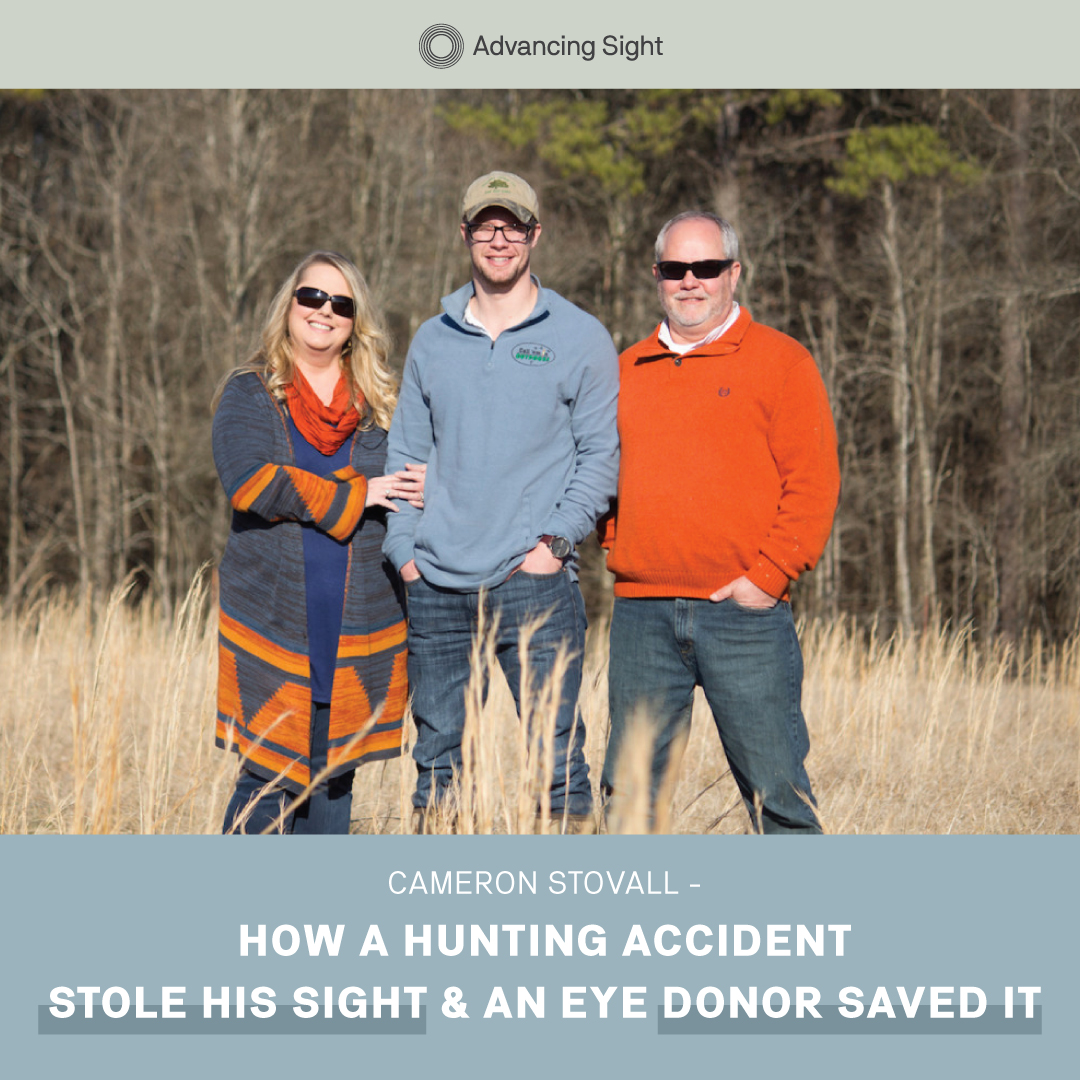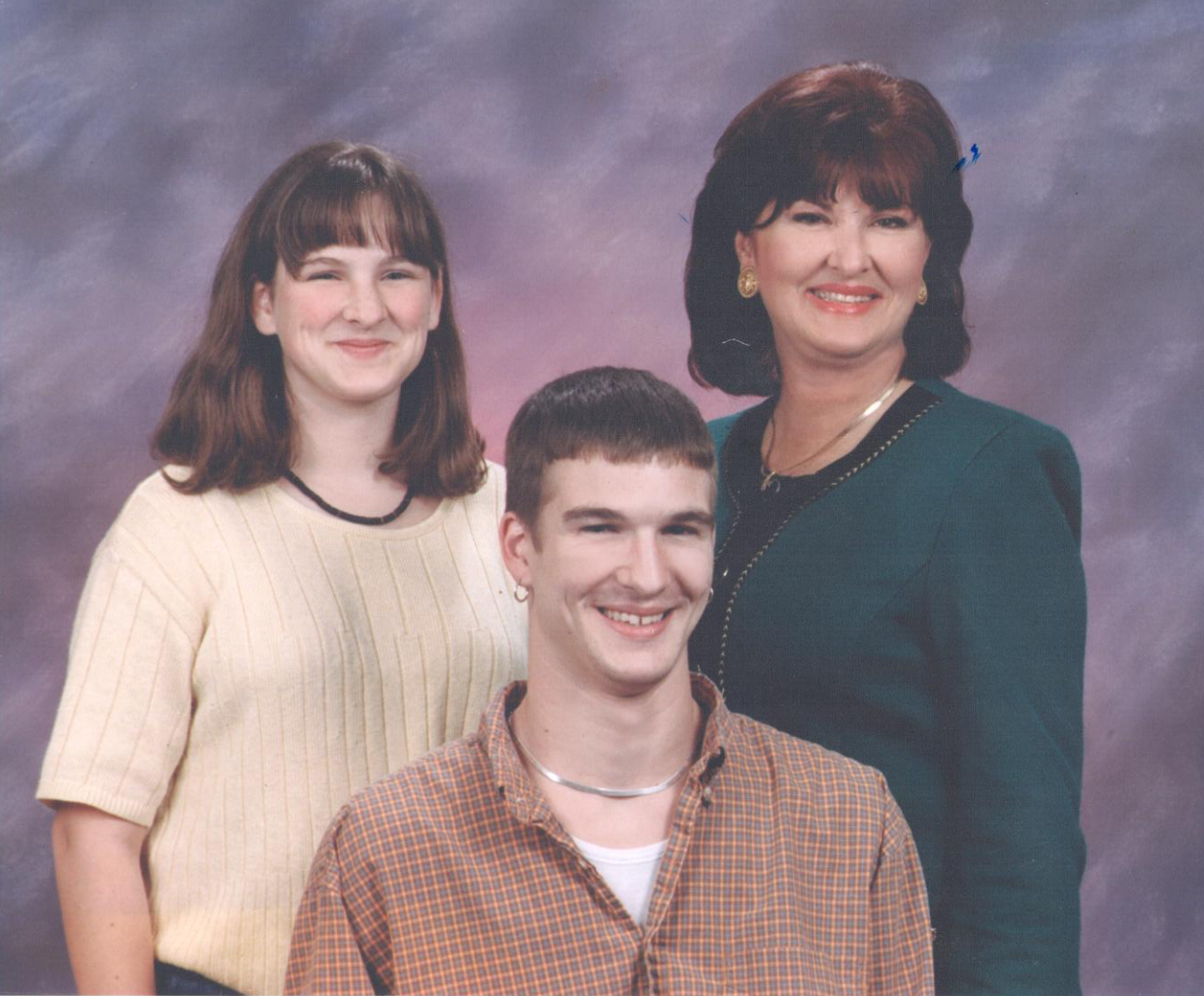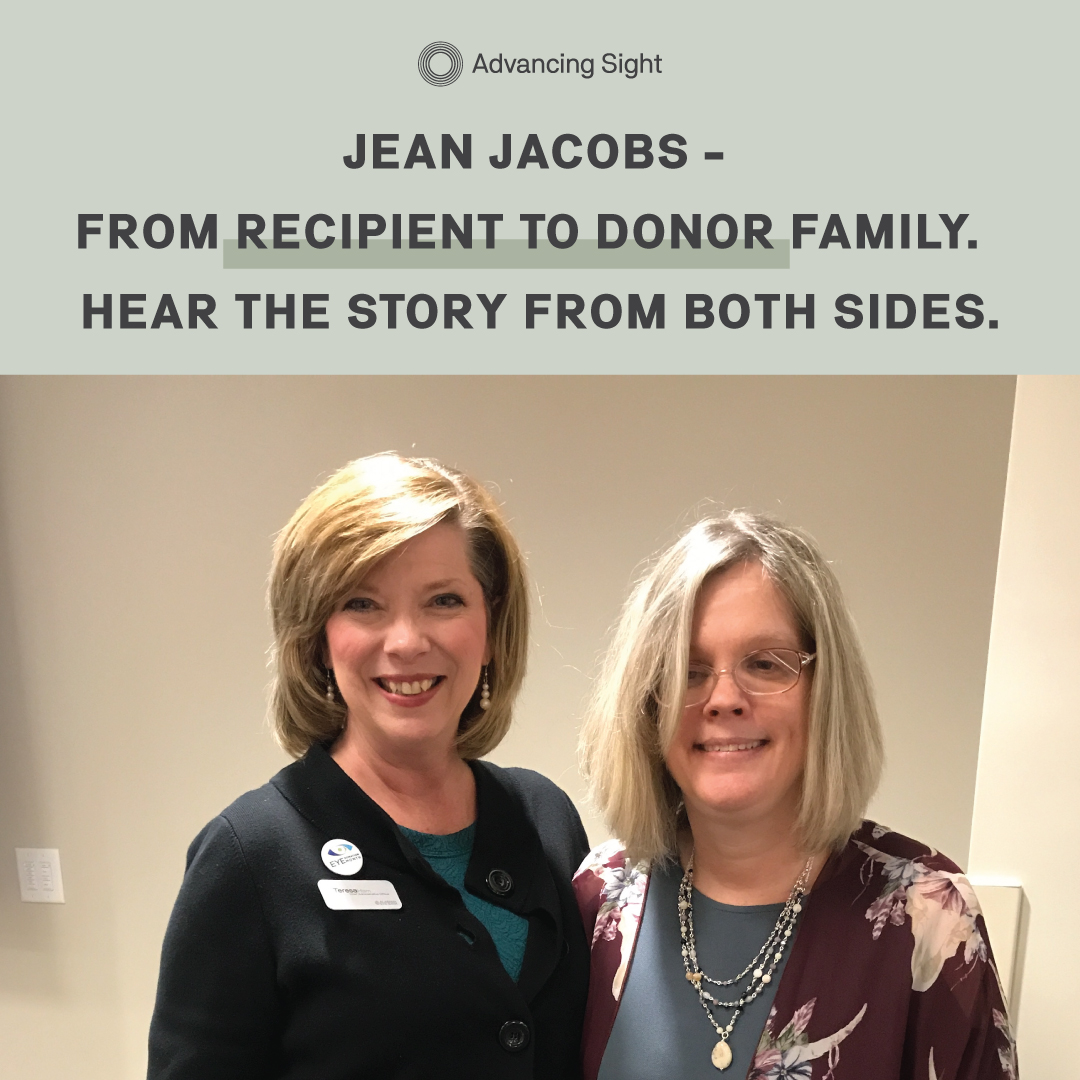by ASN | Sep 27, 2019 | Press Release
 In 2010, 16-year-old Carson Sumpter visited a sports medicine doctor with what he suspected was a pulled muscle in his leg. This “normal, healthy” teenager was diagnosed with stage 4 osteosarcoma (bone cancer) at that appointment. It would be a devastating diagnosis for anyone, and it was especially heartbreaking in someone so young. Carson’s mom, Kim McBrayer, said her son had a special gift for connecting with people and caring about them, and an infectious smile. As he faced cancer treatment, he was an inspiration and a light to those around him more than ever before.
In 2010, 16-year-old Carson Sumpter visited a sports medicine doctor with what he suspected was a pulled muscle in his leg. This “normal, healthy” teenager was diagnosed with stage 4 osteosarcoma (bone cancer) at that appointment. It would be a devastating diagnosis for anyone, and it was especially heartbreaking in someone so young. Carson’s mom, Kim McBrayer, said her son had a special gift for connecting with people and caring about them, and an infectious smile. As he faced cancer treatment, he was an inspiration and a light to those around him more than ever before.
Carson was a musical prodigy who could play any instrument and was a member of his high school band and his church worship band. After his diagnosis, Carson offered comfort to his bandmates Nick Williams and Mark Hermecz. “He just kept repeating to me, ‘Hey, it’s going to be all right,'” Hermecz said. “Carson was one of the strongest men I ever knew.”
“He chose to live joyfully,” said Connie Nolen, a teacher at Pelham High School whose son played on the golf team with Carson. Nolen said she was amazed by Carson’s approach to life with a positive attitude. “I think that Carson Sumpter was my teacher.”
Rebecca Burnett, who taught Carson in the ninth grade, added: “Every time I saw Carson, he was joyful,” Burnett said. “Here he was battling cancer and he was always asking me sincerely … ‘How are you?'”
Carson died July 12, 2011, almost a year after his diagnosis. But his legacy lives on years after his passing. “He did more in 17 years than most people do in 70,” Kim said.
As a lifelong giver, the choice to donate his corneas was an easy one. He became a registered donor when he first got his permit, and his family knew of his wishes long before his diagnosis. While his cancer made the rest of his organs and tissue ineligible for transplant, two individuals are now able to see with the help of corneas donated by Carson. Through his gift, Carson’s legacy of comfort and hope lives on today.
His mom remains ever grateful for the 17 years she had with Carson. Kim says the key to happiness after such a loss is to be thankful for her son. Knowing that he lives on by helping two people see gives her hope and comfort.
by ASN | Sep 27, 2019 | Press Release
 In the spring of 2014, Cameron Stovall lost his sight doing what he loved. At age 26, he was turkey hunting with cousins on a farm, and despite communicating with one another about their movements, Cameron ended up in the line of fire and was struck with 150 shotgun pellets. A college graduate who was working his dream job, Cameron now faced the rest of his life without his sight.
In the spring of 2014, Cameron Stovall lost his sight doing what he loved. At age 26, he was turkey hunting with cousins on a farm, and despite communicating with one another about their movements, Cameron ended up in the line of fire and was struck with 150 shotgun pellets. A college graduate who was working his dream job, Cameron now faced the rest of his life without his sight.
“We wondered how Cam would live in this world as a blind man,” Mary Stovall, Cameron’s mother, said. “He loved the outdoors. He loved to hunt. He loved life. He was so athletic and only 26 years old. He had his whole life ahead of him.”
“I was seen by multiple physicians who gave me very little hope that any of my vision would ever be restored, but Dr. Robert Morris took my case on a whim,” Cameron said. Dr. Kristen Bains was also an enormous part of Cameron’s recovery, including preforming surgery to improve the vision in his left eye. After numerous operations, the most recent a corneal transplant in October 2018 from donor tissue, Cameron has recovered 10 percent vision in his left eye. “It may not sound like a lot, but it is a tremendous amount for someone who spent almost seven weeks completely blind,” Cameron said.
It is enough that Cameron is able to work in his chosen field, and to once again enjoy the outdoors he loves so much. He even recently built a home of his own and moved out of his parents’ home for the first time since the accident.
“Losing my vision completely stopped me in my tracks.,” Cameron recalled. “It taught me so much about the people around me, my friends and family, and a lot about myself. Those trials were a blessing and still are on a daily basis,” he added.
Today, Cameron dedicates a portion of his free time to sharing his message of hope and encouragement with others at schools, colleges, and churches, among others. “Any opportunity I have to encourage someone, that’s what I do,” Cameron said. “Everyone’s affected by something, struggles on a daily basis. The way we handle that struggle is what speaks to people.”
“I share a lot about Helen Keller and what she overcame, being the first deaf and blind person to ever graduate with a bachelor’s degree. Ann Sullivan gets lost in (Helen’s) story. She devoted her whole life to Helen being able to communicate with her,” Cameron said. He went on to add: “That’s what Dr. Morris and Dr. Bains, and the eyes of donors have done for me. They’re my Ann Sullivan.”
by ASN | Sep 27, 2019 | Press Release
 Being asked about organ, eye and tissue donation was not something Denise Edmiston wanted to hear as she mourned the loss of her 16-year-old daughter Mandy on Mother’s Day weekend in 2002. Angry and questioning why, Denise recalls her reaction to the woman who approached her: “I almost decked her,” she said. Denise didn’t care about the time restriction on organ, eye and tissue donation. All she cared about was her daughter.
Being asked about organ, eye and tissue donation was not something Denise Edmiston wanted to hear as she mourned the loss of her 16-year-old daughter Mandy on Mother’s Day weekend in 2002. Angry and questioning why, Denise recalls her reaction to the woman who approached her: “I almost decked her,” she said. Denise didn’t care about the time restriction on organ, eye and tissue donation. All she cared about was her daughter.
A very short time later, Denise’s sister, a nurse, asked her gently, “Is there anything Mandy asked for in the event of her death?” This reminded Denise of just six weeks earlier, taking Mandy to get her driver’s license, how Mandy wanted to be an organ, eye and tissue donor. But Denise advised her daughter to make a big decision like that when she was older. She wasn’t against the idea of donation, but she knew it was a decision that requires consideration.
Remembering this, Denise decided to honor Mandy’s wishes. “Learning how many people would be helped with her beautiful blue eyes didn’t diminish the sorrow we feel, but it gives comfort in knowing that she lives on.”
Today, Denise is the Executive Director of the Alabama Funeral Director’s Association, which works closely with organ, eye and tissue donation. Her experience donating her daughter’s eyes influences her work daily. “I encourage others to be very, very gentle,” she said, and admits she acts “like a big mother” to those she works with.
To someone considering donating, Denise offers this encouragement: “It’s the most unselfish gift you can give. It’s such a comfort to make that difference in the life of someone and their family.”
by ASN | Sep 27, 2019 | Uncategorized
Mid South Eye Bank moves to Bartlett following merger
It’s been an eventful 2019 for the Mid South Eye Bank for Sight Restoration (MSEB), which recently merged with Birmingham-based Advancing Sight Network and moved its office from the Medical District to Bartlett.
Each year, the eye bank sends tissue to more than 55 countries and completes nearly 2,500 corneal transplants.
Combining resources with Advancing Sight Network helped address increasing demands, Advancing Sight Network President and CEO Alan Blake said. Continue Reading
by ASN | Sep 27, 2019 | Press Release
 Friday, August 30, 2019, Jean Jacobs marked three years since her last corneal transplant operation. Of eight previous procedures, all improved her sight for a time, but none produced results lasting longer than six months. Her rare eye condition defied the amazing success rates of corneal transplants.
Friday, August 30, 2019, Jean Jacobs marked three years since her last corneal transplant operation. Of eight previous procedures, all improved her sight for a time, but none produced results lasting longer than six months. Her rare eye condition defied the amazing success rates of corneal transplants.
For Jean, these three years are a miracle. In 2016, she faced worsening eyesight, her doctor insisting one more corneal transplant was necessary, a new procedure and treatment with a 50-percent chance of success. Understandably nervous, Jean took a month to consider her options and to pray. “I turned it over to God and trusted him,” Jean says, crediting prayer and her faith with helping her reach such a difficult decision. Even still, she felt guilt for accepting another new cornea that could grant vision to someone else.
A sudden loss helped Jean reach her decision in a way no one could anticipate. In 2011, Jean’s older brother, who suffered from a chronic illness, died unexpectedly after complications from surgery. He was only 44. Jean received a call from Advancing Sight Network’s referral coordinator. Due to pneumonia, the only organs that could be donated by Jean’s brother were his two corneas.
Choosing to donate her brother’s corneas was an easy decision for Jean to make. Through the course of her treatments and surgeries over the years, Jean’s older brother was her inspiration, encouraging her and supporting her on her journey to regain her sight. Jean knew her brother would gladly donate his corneas to give someone else the opportunity to see. This also helped inspire Jean to pursue one final transplant operation; she knew it was what her brother would have wanted.
Eye donation changed her life in more ways than one. She was given the gift of seeing her children for the first time. She found hope and strength following the death of her brother. And today, Jean dedicates her time as a speaker and advocate for organ, eye and tissue donation.
Jean’s goal is to inspire others facing similar obstacles to keep going and never give up. “Everyone gets to the finish line at a different pace,” Jean says. She doesn’t use the word “disability.” Rather, Jean says, “Everyone has an ability.”
 In 2010, 16-year-old Carson Sumpter visited a sports medicine doctor with what he suspected was a pulled muscle in his leg. This “normal, healthy” teenager was diagnosed with stage 4 osteosarcoma (bone cancer) at that appointment. It would be a devastating diagnosis for anyone, and it was especially heartbreaking in someone so young. Carson’s mom, Kim McBrayer, said her son had a special gift for connecting with people and caring about them, and an infectious smile. As he faced cancer treatment, he was an inspiration and a light to those around him more than ever before.
In 2010, 16-year-old Carson Sumpter visited a sports medicine doctor with what he suspected was a pulled muscle in his leg. This “normal, healthy” teenager was diagnosed with stage 4 osteosarcoma (bone cancer) at that appointment. It would be a devastating diagnosis for anyone, and it was especially heartbreaking in someone so young. Carson’s mom, Kim McBrayer, said her son had a special gift for connecting with people and caring about them, and an infectious smile. As he faced cancer treatment, he was an inspiration and a light to those around him more than ever before.

 Being asked about organ, eye and tissue donation was not something Denise Edmiston wanted to hear as she mourned the loss of her 16-year-old daughter Mandy on Mother’s Day weekend in 2002. Angry and questioning why, Denise recalls her reaction to the woman who approached her: “I almost decked her,” she said. Denise didn’t care about the time restriction on organ, eye and tissue donation. All she cared about was her daughter.
Being asked about organ, eye and tissue donation was not something Denise Edmiston wanted to hear as she mourned the loss of her 16-year-old daughter Mandy on Mother’s Day weekend in 2002. Angry and questioning why, Denise recalls her reaction to the woman who approached her: “I almost decked her,” she said. Denise didn’t care about the time restriction on organ, eye and tissue donation. All she cared about was her daughter. Friday, August 30, 2019, Jean Jacobs marked three years since her last corneal transplant operation. Of eight previous procedures, all improved her sight for a time, but none produced results lasting longer than six months. Her rare eye condition defied the amazing success rates of corneal transplants.
Friday, August 30, 2019, Jean Jacobs marked three years since her last corneal transplant operation. Of eight previous procedures, all improved her sight for a time, but none produced results lasting longer than six months. Her rare eye condition defied the amazing success rates of corneal transplants.